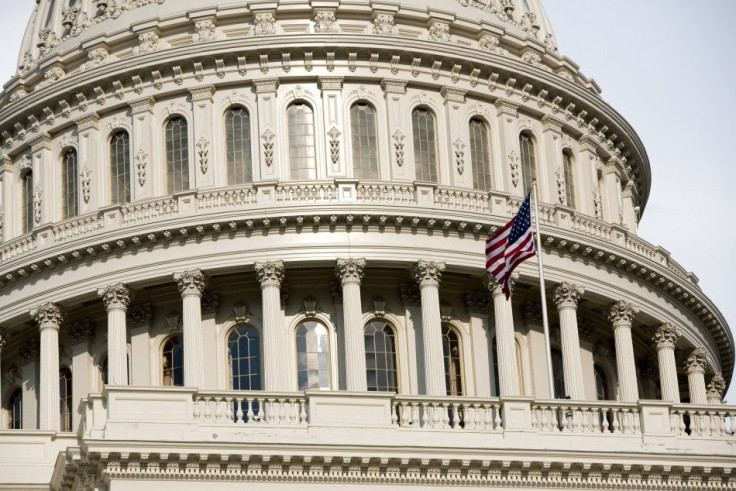Fiscal Cliff - A 2013 Recession Triggered By Capitol's GOP, Dems?

The U.S. economy will likely dip into another recession in the first half of 2013 if planned tax increases and spending cuts are allowed to go into effect in January, the Congressional Budget Office said Tuesday.
Fiscal cliff, a phrase coined by Federal Reserve Chairman Ben Bernanke, is used to describe the simultaneous onset of tax increases and spending cuts that will be triggered on Jan. 1 unless Congress acts.
The combination of those policies under current law will reduce the federal budget deficit by $607 billion, or 4 percent of gross domestic product, between fiscal years 2012 and 2013, said the CBO, the nonpartisan agency that operates as Congress' budget watchdog.
The resulting weakening of the economy will lower taxable incomes and raise unemployment, generating a reduction in tax revenues and an increase in spending on such items as unemployment insurance.
With that economic feedback incorporated, the deficit will drop by $560 billion between fiscal years 2012 and 2013, the CBO projects.
The agency forecasts that the U.S. economy will contract 1.3 percent in the first six months of 2013 if certain tax increases and spending cuts are allowed to take effect next year, before growing 2.3 percent later in the year. That would translate into annualized GDP growth of just 0.5 percent in 2013.
Given the pattern of past recessions as identified by the National Bureau of Economic Research, such a contraction in output in the first half of 2013 would probably be judged to be a recession, the report stated. A recession is technically defined as two economic quarters of negative economic growth.
If Congress and the White House remove all the automatic cuts and tax increases, growth would rise to 4.4 percent, the CBO estimates.
However, the agency warned that eliminating or reducing the fiscal restraint scheduled to occur next year without imposing comparable restraint in future years would reduce output and income in the longer run relative to what would occur if the scheduled fiscal restraint remained in place.
If all current policies were extended for a prolonged period, federal debt held by the public -- currently about 70 percent of GDP, its highest mark since 1950 -- would continue to rise much faster than GDP, the CBO said.
With the presidential race in full swing, the fiscal cliff is no longer in the shadows, Barry Knapp, head of U.S. equity strategy at Barclays Capital, wrote in a May 18 note.
We see an uncomfortably high 44 percent probability of 'going off the cliff' and don't think analysts and investors have fully priced the probability of this outcome, Knapp said.
© Copyright IBTimes 2025. All rights reserved.






















